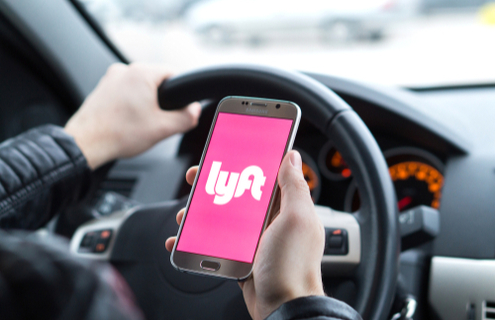Short sellers borrow $455m worth of LYFT shares following IPO
03 April 2019 New York
 Image: Shutterstock
Image: Shutterstock
Shares of Lyft, a transportation network company, closed 2 April 4 percent below its initial public offering (IPO) price of $72, however, Sam Pierson, director of securities finance at IHS Markit suggests that belies the volatility of the first three days of trading.
The shares opened above $87 on Friday, the first day of trading, so 2 April’s close reflects a 26 percent decline from the intraday peak.
Pierson explained that 2 April was the first settlement day for Lyft shares, which means short sellers are able to borrow shares to settle short sales.
IHS Markit Securities Finance receives intraday reporting of borrow transactions from market participants, which allowed those contributors to see 1.56 million shares in new borrows on 2 April, which were lent out at just over 100 percent annualised fee.
In the overnight settlement reports, Pierson noted that there were 6.61 million shares reported as on-loan—a market value of $455 million—which serves as the best proxy for the current short position.
According to IHS Markit, borrow fees range from 85 percent to 150 percent, however, the majority of activity has been just over 100 percent fee.
Pierson explained that makes Lyft the most expensive to borrow US equity with over $5 million in balances.
Pierson stated: “New IPOs often attract short sellers, who seek to capitalise on falling momentum after an IPO. Timing is the key, which is why short sellers are often willing to pay extraordinary borrow fees for IPOs.”
He added: “Even successful companies often stumble out of the gates, for example, Facebook shares fell more than 50 percent during their first three months of trading before rallying more than 800 percent off the lows. On the other end of the spectrum, shares of Blue Apron doubled in price during their first three months of trading, before falling 75 percent from the peak.”
The shares opened above $87 on Friday, the first day of trading, so 2 April’s close reflects a 26 percent decline from the intraday peak.
Pierson explained that 2 April was the first settlement day for Lyft shares, which means short sellers are able to borrow shares to settle short sales.
IHS Markit Securities Finance receives intraday reporting of borrow transactions from market participants, which allowed those contributors to see 1.56 million shares in new borrows on 2 April, which were lent out at just over 100 percent annualised fee.
In the overnight settlement reports, Pierson noted that there were 6.61 million shares reported as on-loan—a market value of $455 million—which serves as the best proxy for the current short position.
According to IHS Markit, borrow fees range from 85 percent to 150 percent, however, the majority of activity has been just over 100 percent fee.
Pierson explained that makes Lyft the most expensive to borrow US equity with over $5 million in balances.
Pierson stated: “New IPOs often attract short sellers, who seek to capitalise on falling momentum after an IPO. Timing is the key, which is why short sellers are often willing to pay extraordinary borrow fees for IPOs.”
He added: “Even successful companies often stumble out of the gates, for example, Facebook shares fell more than 50 percent during their first three months of trading before rallying more than 800 percent off the lows. On the other end of the spectrum, shares of Blue Apron doubled in price during their first three months of trading, before falling 75 percent from the peak.”
NO FEE, NO RISK
100% ON RETURNS If you invest in only one securities finance news source this year, make sure it is your free subscription to Securities Finance Times
100% ON RETURNS If you invest in only one securities finance news source this year, make sure it is your free subscription to Securities Finance Times



